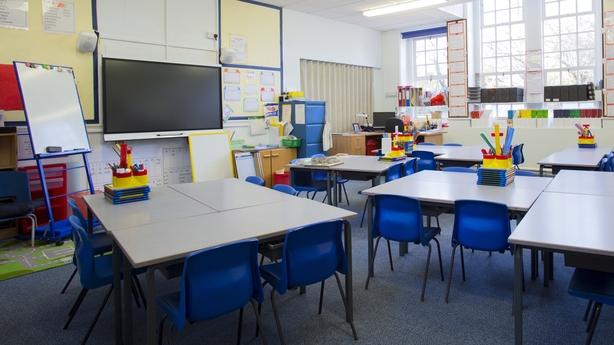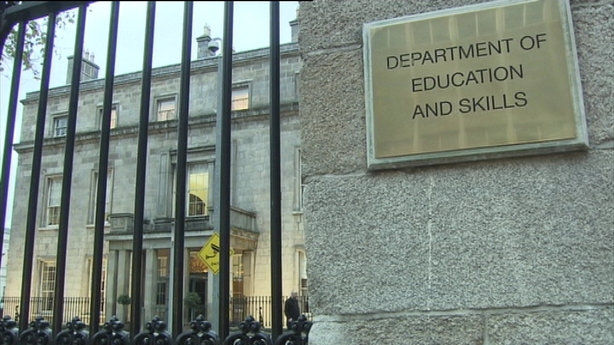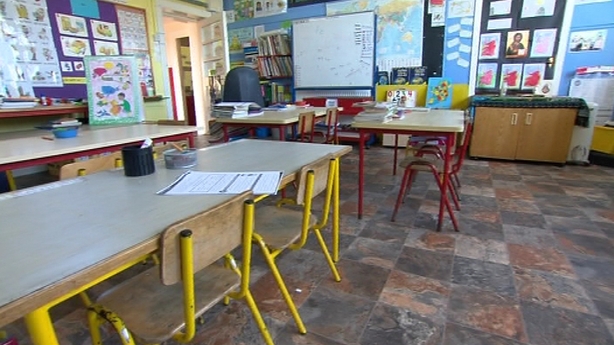There is uncertainty and some nervousness among Special Needs Assistants over yesterday's announcement that they may be reassigned temporarily to other caring roles.
The school closures have made their usual jobs - offering physical support to children in school who have care needs in areas such as mobility or toileting - redundant.
A HSE document sent out to school managers today clarifies somewhat the circumstances under which such a reassignment might take place, and the kind of new roles envisaged.
It talks about SNA supports "for People with Complex Healthcare Needs", and says any SNA reassigned would be working "in collaboration with healthcare professionals in children’s disability services".

It says that "in general", they will have the relevant experience for the role they are assigned to, and in many cases, they will know the children they are assigned to work with.
Some SNA’s will be asked to continue support for the children they already care for, in the main remotely; a daily phone call for instance, or a video link via Facetime or WhatsApp. This would be to provide advice to parents, or to share the schedule that the child may be familiar with in school.
The SNA might also offer support in how to manage challenging behaviours and provide resources or materials for a child to use.
Some SNAs say they are already doing this. This new programme should formalise it somewhat. It centralises all assignment of SNAs under the Public Appointment’s Service.
Read
Latest coronavirus stories
This kind of remote support is likely to be invaluable to the parents of children with special needs. Many of them are struggling at home, juggling one child’s care needs with other family and work demands. In some cases those care needs are significant indeed.
According to the HSE document an SNA may also be asked to support a child that they know in ways that go beyond remote contact. They may be asked to take a child on "short outings as a form of respite for families" or "provide one-to-one sessions in an appropriate facility/disability services building familiar to the child and family".
The document also explores ways in which an SNA can provide support to children that they have not had direct dealings with in the past. These could be children with high levels of need, or children in families where more than one child needs support.
The families of these children are under especial pressure right now.

According to the Department of Education, this will be done if and when necessary in order to free up healthcare workers such as nurses to take up duties in the "frontline" – working to treat sick people in hospitals for instance.
The supports that SNAs could offer - according to the HSE - include one to one sessions "in an appropriate facility/disability services building familiar to the child and family", or acting as an additional staffing resource in children's respite services.
The Department of Education does not envisage the redeployment of every Special Needs Assistant in the country. Far from it.
They know that there are a number of factors that come into play; the experience and particular skills of an individual SNA of course, but also geographical factors.
And then there is childcare. With schools and childcare facilities closed many SNAs will have caring duties of their own.
Parents of course, and schools too, are acutely aware of the particular difficulties facing children with disabilities and their families now that the schools are closed.
One parent of a little boy with autism tells me that along with school, all of his additional therapies have gone as well; his speech and language therapy and his occupational therapy.
"Kids with special needs are an afterthought", he says. "They are the ones who are going to regress if they are not cared for".

Schools have been scrambling to try and put in place learning for individual children with special needs.
After two weeks of no contact from her child’s school, the parents of another child with autism tells me that she greatly appreciates little tips she has received this week.
"Pegging socks together," she says, "we’ve been told to do anything with pegs because that is good for pencil grip".
These are seemingly simple things that an SNA might be able to advise on.
But SNAs are anxious. "We are not trained for nursing duties", texts one.
Another SNA, Sinéad Burns, gives expression to other shared misgivings.
"I don’t mind doing something else", she says, "I’ve no problem helping and I am well aware that I’m being paid.
"But I have children of my own and I would just be concerned about what the setting would be, I am a little bit wary."





